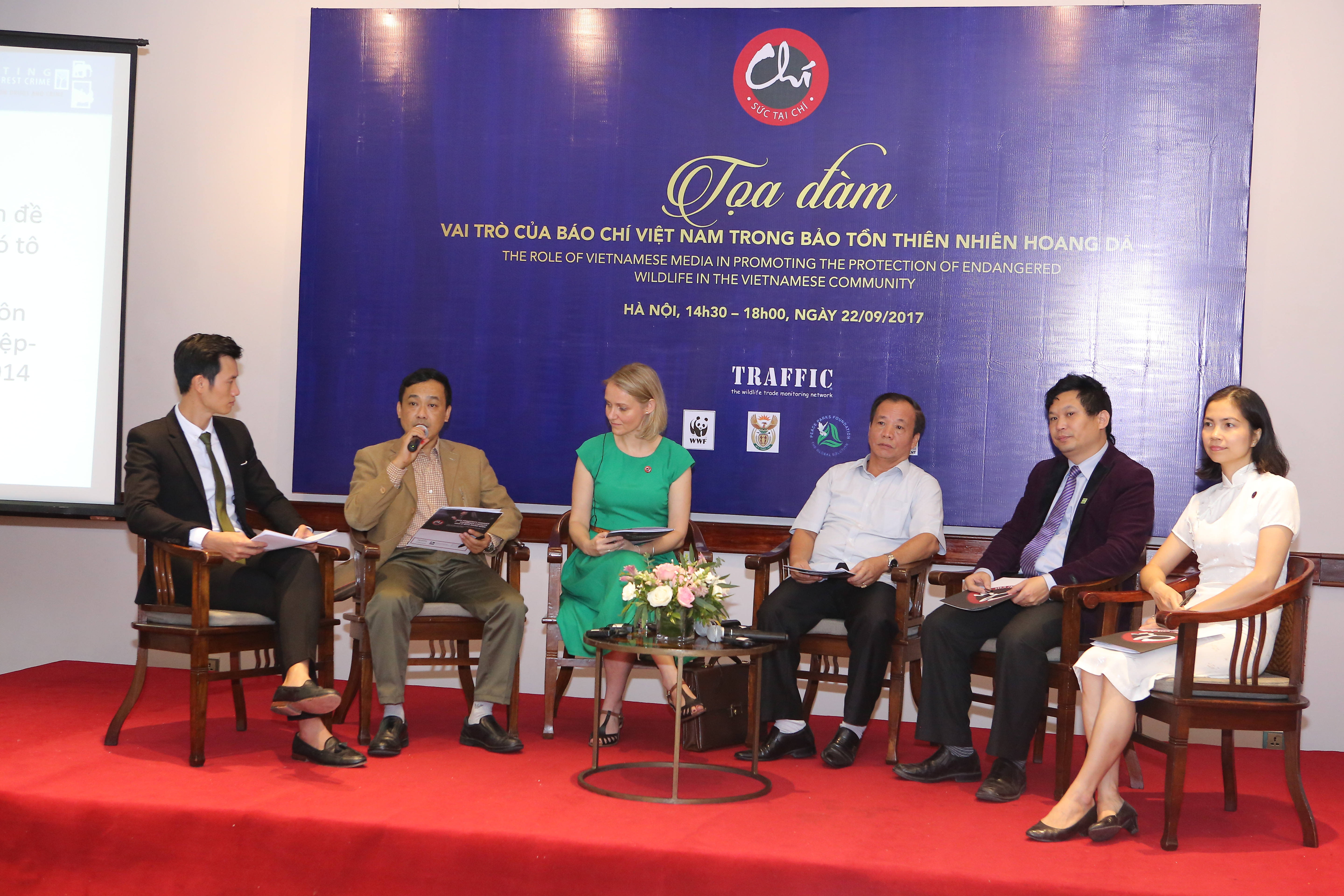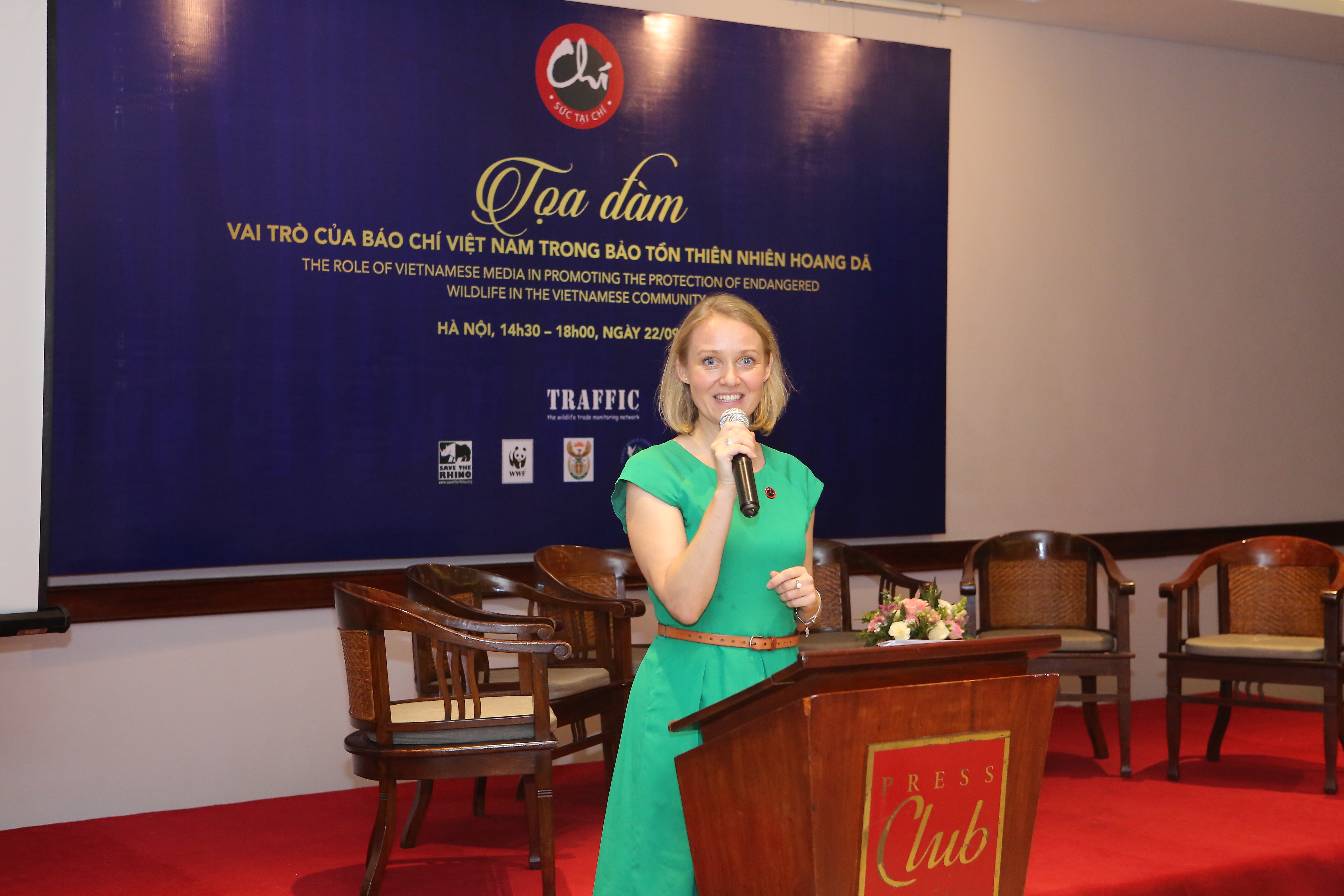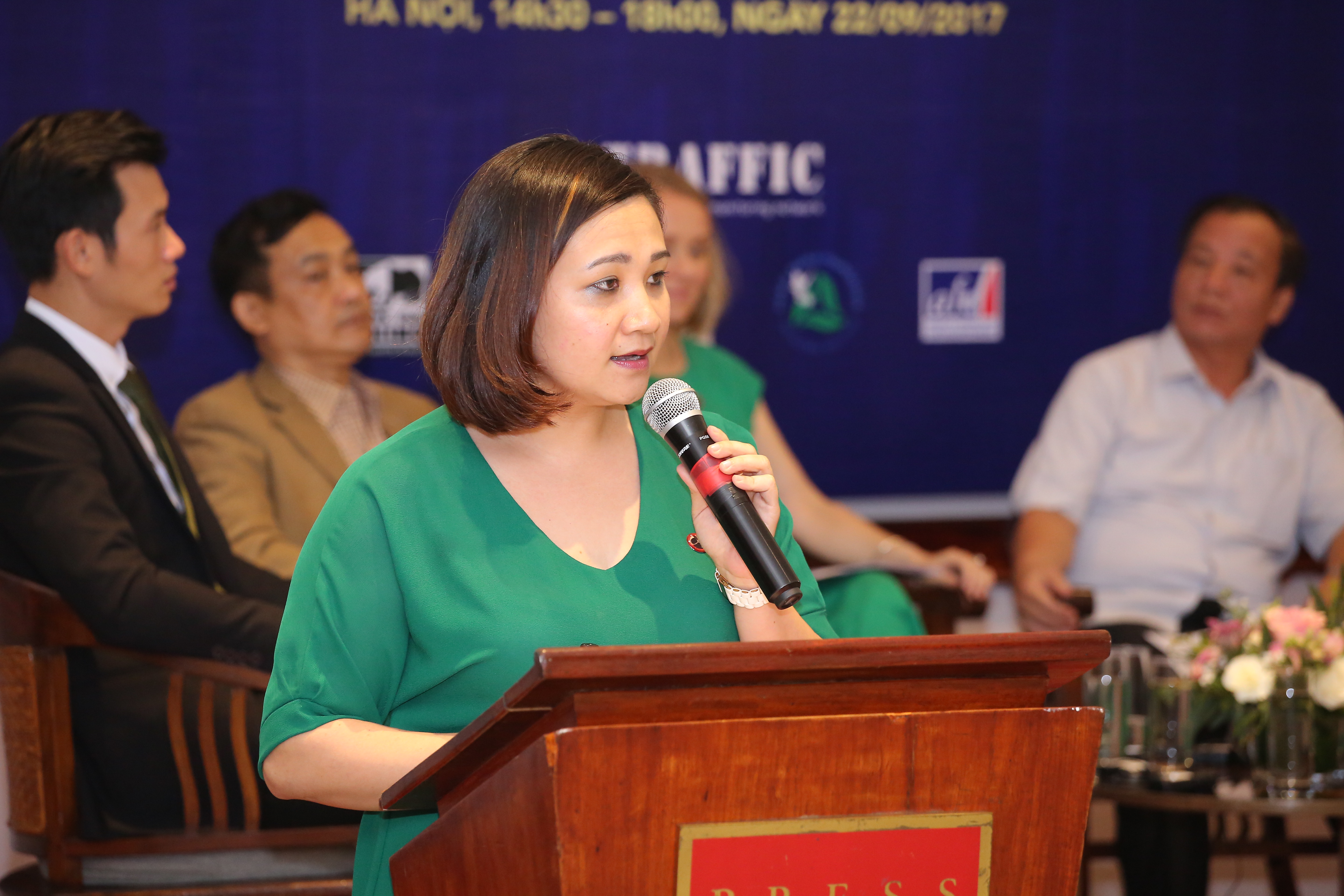Vietnamese media to become “agents of change” in efforts to deter wildlife crime

The seminar was initiated to reveal the powerful way media outlets can incorporate social responsibility into their work and contribute to combatting wildlife crime. The seminar was funded by Peace Parks Foundation, Save the Rhino, UK Government, the French Development Agency (AfD) and WWF.
Over the last decade, Vietnam has regularly been identified as both a transit country and consumer market for endangered wildlife products such as rhino horn and elephant ivory. The ongoing demand continues to drive the criminal activities of wildlife poaching and trafficking, selling, buying and consumption of illegal wildlife products such as rhino horn.
Since 2014, under the Chi Initiative, TRAFFIC and other government, civil-society and corporate partners have worked together to reduce demand for rhino horn amongst key groups of consumers. “Chi” refers to “inner strength of will”, a highly-respected trait in Vietnamese society.
The media has played a critical role in helping spread the Chi initiative’s message of “zero-tolerance towards the consumption of threatened wildlife” to larger audiences, including to specific target groups among the business community, shown by comprehensive research to be the most prolific users of rhino horn.
“More than ever before, media plays an important role in creating and shaping public opinion on topical global issues such as illegal wildlife trafficking,” said Madelon Willemsen, head of TRAFFIC’s Vietnam Office.

“As a conservation non-governmental oganisation, TRAFFIC has expertise in delivering social behaviour change communications to discourage undesirable behaviour, such as wildlife-related criminal acts. Media outlets taking on a role as ‘agents of change’ helps to amplify this messaging to maximise its positive impacts,” she said.
“The Vietnamese media plays a critical role in shaping the moral values around the consumption and illegal trade of threatened species and what responsible Vietnamese citizens must do to protect threatened wildlife worldwide,” she added.
During the seminar, representatives from TRAFFIC, social organisations, government agencies and the United Nations Office on Drugs and Crime spoke about social responsibility, the importance of wildlife protection, demand reduction efforts for rhino horn in Vietnam and details on how Vietnamese media can support wildlife protection.

“Behaviour change communications are a useful approach in reducing the demand for illegal wildlife products in Vietnam,” said Trinh Nguyen during her keynote speech on the Chi initiative.
Bui Duyen, a senior expert on behaviour change communication of Intelligentmedia said that, “Chi Initiative is considered a new and unique approach in conservation."
Chi Initiative encourages successful businessmen to show their capability and “Chi” by becoming pioneer leaders in the work of social responsibility and wildlife protection.
Chi Initiative led by TRAFFIC and Intelligentmedia is part of the efforts to reduce the demand for using rhino horns in Vietnam. The initiative is designed in a way to maximise its access to the target group: men from 30 to 55 living in urban areas of Hanoi and Ho Chi Minh City.
It has been implemented from October 2014 through multi-media channels which can cover not only the target group but also governmental agencies, associations of businessmen, traditional medicine association and the community as a whole.
| Status through art, not wildlife As many as 80 influential guests from the public and private sector attended a World Rhino Day art event opening on September 22 in Hanoi that promotes zero-tolerance towards illegal wildlife consumption and provides an alternative way to affirm prestige. |
| Anti-rhino horn campaign calls on businessmen’s inner strength TRAFFIC and Intelligentmedia launched the second phase of their “Chi” or “Strength of Will” initiative on July 6, with updated messages and images to continue their mission to instill zero tolerance towards rhino horn consumption. |
| Victims of useless potions and empty gestures An unborn rhino foetus removed from its dead and de-horned mother. This particular poaching incident also cost a wildlife ranger his life. |
What the stars mean:
★ Poor ★ ★ Promising ★★★ Good ★★★★ Very good ★★★★★ Exceptional
Latest News
More News
- 14th National Party Congress wraps up with success (January 25, 2026 | 09:49)
- Congratulations from VFF Central Committee's int’l partners to 14th National Party Congress (January 25, 2026 | 09:46)
- List of newly-elected members of 14th Political Bureau announced (January 23, 2026 | 16:27)
- 14th Party Central Committee unanimously elects To Lam as General Secretary (January 23, 2026 | 16:22)
- List of members of 14th Party Central Committee announced (January 23, 2026 | 09:12)
- Highlights of fourth working day of 14th National Party Congress (January 23, 2026 | 09:06)
- Press provides timely, accurate coverage of 14th National Party Congress (January 22, 2026 | 09:49)
- Press release on second working day of 14th National Party Congress (January 22, 2026 | 09:19)
- Minister sets out key directions to promote intrinsic strength of Vietnamese culture (January 22, 2026 | 09:16)
- 14th National Party Congress: Renewed momentum for OVs to contribute to homeland (January 21, 2026 | 09:49)



















 Mobile Version
Mobile Version